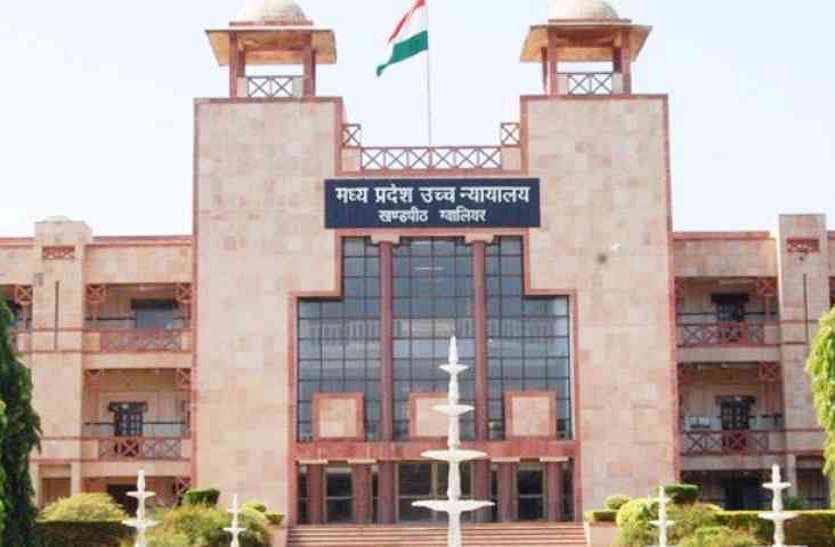Title: Ashutosh Tiwari, Kamlesh Shukla vs The State of M.P & Vikas Khare
Citation: MISC. CRIMINAL CASE No. 6138 of 2010
Coram: HON’BLE JUSTICE VISHAL DHAGAT
Decided on: 6-11-2023
Introduction:
The petitioners have filed a petition under Section 482 of the Criminal Procedure Code (Cr.P.C) seeking the quashing of proceedings in complaint case No. 218/2010. This case is currently pending before the Chief Judicial Magistrate in Shahdol. The counsel for the petitioners highlights that a stay over the proceedings was initially granted by the court on July 7, 2010, until the next date of hearing. Subsequently, this stay was continued on March 15, 2013, and May 2, 2014. However, after the latter date, the case was not listed before the court. The council requests a hearing for the case, emphasising that it has been pending before the court since 2010.
Facts:
The facts of the case are such that, The petitioners are seeking to quash proceedings in complaint case No.218/2010, where they are accused of offences under Section 294, 506(II) of IPC, and 3(1)(x) of SC & ST (POA) Act. The petitioner’s counsel argues that no offence is made out, emphasising that the alleged abusive remarks occurred in a school staff room, which is not a public place. They contend that the remarks don’t fall under Section 3(1)(x) of the Act as it requires a place within public view.
Furthermore, the defence asserts that Section 294 of IPC, which deals with obscene acts or utterances, applies only to public places. The government advocate argues that the staff room can be considered a public place as other teachers were present during the alleged incident. Respondent No.2, the complainant, is not actively pursuing the case, leading to the court proceeding ex parte.
The relevant sections of the Scheduled Castes and Scheduled Tribes (Prevention of Atrocities) Act, 1989 (Section 3(1)(x)), and the Indian Penal Code (Sections 294 and 503) are invoked in this case. The crux of the matter lies in whether the staff room is deemed a public place and if the alleged acts and utterances fulfil the legal criteria for the stated offences.
Court analysis and order:
The judgment in this case reflects the court’s consideration of the arguments presented by both the petitioners and the government advocate. Here is an analysis of the judgment: The court carefully examines the definitions provided in the Scheduled Castes and Scheduled Tribes (Prevention of Atrocities) Act, 1989 (Section 3(1)(x)), and the Indian Penal Code (Section 294 and 503). It emphasizes that for an offence under Section 3(1)(x) of the SC & ST (POA) Act, the act must occur in public view. The court addresses the crucial point of whether the staff room qualifies as a public place, asserting that the staff room is not within public view. Emphasis is placed on the restricted access to the staff room, stating that the common public or citizens cannot enter without school permission. The court extends its analysis to Section 294 of the IPC, highlighting that the alleged abuses did not take place in a public location, reiterating that the staff room does not qualify as a public place.
The judgment scrutinizes the complainant’s statement and notes the absence of any mention of alarm caused by the alleged threats. It concludes that an offence under Section 506 of IPC is not established. Based on the considerations above, the court allows the petition filed by the petitioners under Section 482 of Cr.P.C. The court quashes the proceedings in complaint Case No.218/2010 against the petitioners, involving charges under Section 294, 506(II) of IPC & 3(1)(x) of SC & ST (POA) Act.
The petition filed by the petitioners is allowed and disposed of. The judgment concludes by mentioning the issuance of a certified copy as per the rules. In summary, the court’s decision rests on the interpretation of relevant legal provisions and a meticulous examination of the circumstances surrounding the alleged offences. The finding is in favour of the petitioners, leading to the quashing of the proceedings.
“PRIME LEGAL is a full-service law firm that has won a National Award and has more than 20 years of experience in an array of sectors and practice areas. Prime legal falls into a category of best law firm, best lawyer, best family lawyer, best divorce lawyer, best divorce law firm, best criminal lawyer, best criminal law firm, best consumer lawyer, best civil lawyer.”
Written By: Gauri Joshi


